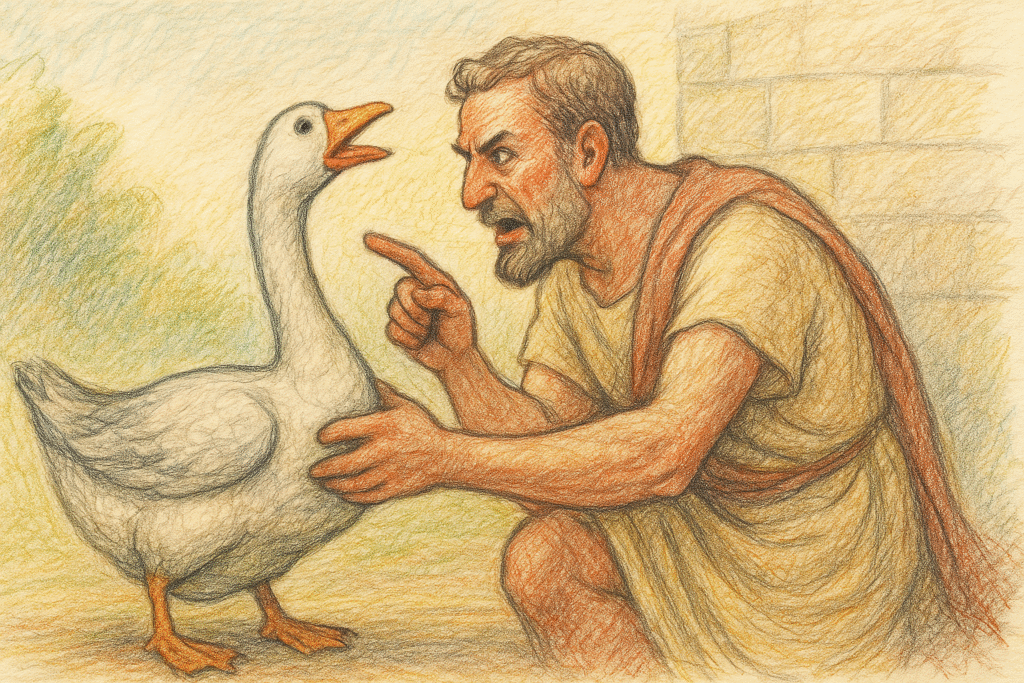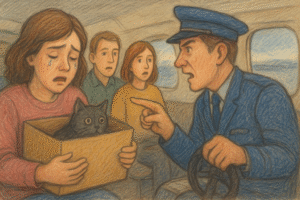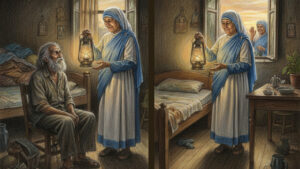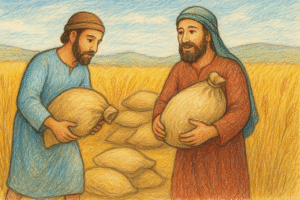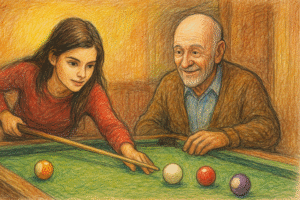Geese are highly regarded in Rome because, according to legend, the geese in the Temple of Juno once saved the city’s last defenders from falling into the hands of the Gauls when they attacked shortly after 400 BC.
The fable says that many years after this event, a Roman decided to sacrifice one of his geese to eat it. At first, the goose allowed its owner to grab it, thinking it was a peaceful visit. But as soon as the owner mentioned that it was plump enough to be eaten, the goose realized the fate that awaited it.
It then began to plead for its life. The owner asked, “Why shouldn’t I kill you?” And the goose replied, “Because we geese defended your city—you are Roman, not Gallic, thanks to us.”
“True,” said the owner, “but I’m hungry, I need to eat, and you are good food.”
“Yes,” replied the goose, “but you can’t kill me.”
The owner asked again, “And why can’t I kill you?”
The goose repeated, “Because we geese saved the city of Rome.”
The owner countered, “But what did you do to save Rome?”
Again, the goose insisted, “We geese saved Rome—you can’t kill me.”
“But what did you do?” the owner pressed once more.
And the goose gave the same answer: “We geese saved Rome.”
The conversation continued this way until the owner grew tired and ate the goose. The lesson of this fable is simple: each person is valued for what they do, not for what their ancestors did. The idea that we are good because of what others who “represent me” (by sharing my country, race, etc.) have accomplished is very common—yet it is false. Both the particular and final judgments will not be based on what my country, race, or ancestors did, but on what I did or failed to do.
Our Lord Jesus Christ also fought against this notion, as it was prevalent among His contemporaries, especially those who believed they were justified simply for being “children of Abraham.” Jesus constantly sought to teach them that merit is personal, not collective and that each person is good or not, just or not, holy or not, based only on their own actions. Goodness is personal; it does not depend on others or on what our ancestors did, but on what each of us does with our own freedom.
To be free means building our own goodness. We are free to decide what kind of person we want to be, and the kind of person we become is determined by the choices we make—by the good or evil we do through our decisions. The good or evil done by our parents or ancestors does not define us; rather what changes us is the good or evil we do through our actions and decisions, in short, our freedom.

